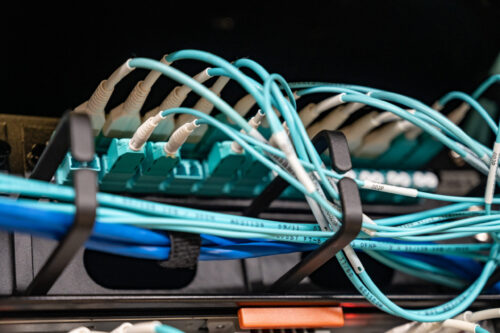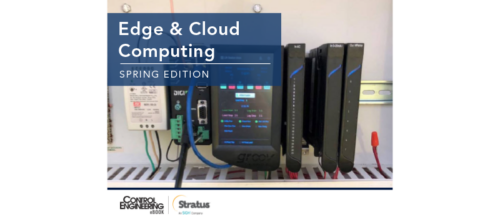Control Engineering Newsletter for Software — March 2002
In this issue:
National Manufacturing Week
Web Services
Linux
USDATA seminars
National Manufacturing Week
Next week is National Manufacturing Week, four trade shows in one venue. The trade shows are Industrial Automation, Plant Engineering, Design Engineering, and Industrial IT. Also included is a Motion Control pavilion. I’ve been attending trade shows for about 20 years. I even went when I had to pay my own way just so I could meet acquaintances and look at products and companies in the industry. Attendance at some trade shows and conferences has declined over the past couple of years. This week I’m at the Embedded Systems Conference, where people go for the conference.
Check out who will be exhibiting at NMW at / and clicking on the NMW button. We’ll be posting related developments daily and connecting to related coverage under NMW 2002.
Will you be attending one of these shows? Does your employer discourage taking time off for conferences? Where do you go for additional training and information? What do you think is the future for trade shows and conferences? Let me know at gmintchell@cahners.com .
Back to top
Web Services
Web services are the ‘Next Big Thing’ in software. This is essentially application talking to application automatically and seamlessly. For example, an embedded controller on a machining line or out in a remote process sends data automatically to an HMI/SCADA application, which, in turn, sends requested information in the appropriate format to a customer relationship or order tracking application in the corporate suite of applications.
For this to happen, there must be a common ‘language’ and interoperability among different applications from different suppliers. Do I hear a little skepticism from control engineers who have been promised interoperability among control applications and hardware for almost 10 years with only a little progress? Well, some companies are working for neutral standards to promote this interoperability.
First, there is general agreement that XML (eXtensible Markup Language) will be the language of web services. Both Microsoft’s .Net and Sun’s Java One initiatives use this World Wide Web Consortium standard. (Visit W3C at https://www.w3c.org for more.) SOAP (simple object access protocol) will be the transport mechanism typically working over HTTP. WSDL (web services description language) is the standard for describing what services are available, while UDDI (universal description, discovery, and integration) is the standard for discovering what services exist out on the network.
Notice that both Sun and Microsoft are working on products and services. Each will, of course, pursue its own best interests, which sometimes means trying to capture the customer’s entire experience while inhibiting access to the competitor’s products. Customers quite naturally want flexibility to use the best of both or switch when in the best interest of the company.
Enter Web Services Interoperability Organization (WS-I). Founded by BEA Systems, Hewlett-Packard Co., IBM Corp., Intel corp., and SAP, the organization is an industry initiative focused on promoting web service interoperability across platforms, applications, and programming languages and promoting customer adoption and deployment.
Check out more at https://www.ws-i.org
Another situation involves identifying users on the Internet. Most famous in Microsoft’s Passport. Users register information with Passsport which manages passwords, credit card numbers, and authentication so that other sites visited can be assured that ‘you are you.’ Many people are uneasy that information would be maintained by a private company, despite Microsoft’s assurances that it will respect privacy and not exploit that large database of user information for marketing purposes. Therefore, the Liberty Alliance Project, formed by many supplier companies, strives to enable a decentralized approach to garnering personal or proprietary information and promote interoperability providing a universal, open standard for ‘single sign-on.’
Check out more at https://www.projectliberty.org
See related Control Engineering articles at /archives/2002/ctl0202.01/020200.htm
Back to top
Linux
I’ve heard from a few readers who are interested in Linux. There’s not a lot of news every month, but I’ll keep an eye on what’s happening for manufacturing and control. When you receive this newsletter, I’ll be in San Francisco at the Embedded Systems Conference. I’m expecting a few Linux announcements, so watch the CE web site and future newsletters for more.
WebDock DataPort, introduced last year for Windows is now available for the Linux operating system. DataPort for Linux allows logging of data from Rockwell’s Allen-Bradley programmable controllers to a flat file or MySQL database. The software is available now through a Beta program detailed on the WebDock website. The list price of the software is (US)$2,000.
DataPort for Linux offers direct connectivity to Rockwell’s Allen-Bradley PLC-5, SLC-500, and ControlLogix controllers with Ethernet communications capability. The product contains a configuration wizard and includes capabilities for polled or triggered data logging, built-in mathematical functions, a graphical interface, and live and historical monitors for viewing data. The software works with Linux 2.2 or higher kernel or Solaris, GTK libraries.
For more, visit https://www.webdock.net
Meanwhile, MontaVista Software, a company formed to bring Linux to the embedded control space, announced the one hundredth member of its Partnering Program. PointBase, Inc., developer of Java database technology for managing and synchronizing enterprise data among servers, mobile and pervasive computing devices, has joined up.
Besides PointBase, the program includes hardware manufacturers like Alchemy Semiconductor, Force Computers, IBM, Intel, MIPS Technologies, Motorola, and RadiSys, and software companies like GoAhead Software, IONA, Solid Information Technology, and TimesTen Performance Software.
Check it out at https://www.mvista.com/partnering/partners.html and at https://www.mvista.com
Back to top
USDATA seminars
USDATA has launched a series of technical seminars in over 20 cities throughout North America and Europe. TechTour 2002 is intended for technical audiences including USDATA Certified Integration Professionals, OEM staff, and end-user organizations. Scheduled events include discussions regarding the latest technologies and their impact on the future of SCADA/HMI, interaction with technology experts, and observations on the power of the company’s products and technologies.
For more information on TechTour 2002 go to https://www.usdata.com/techtour
Back to top
Do you have experience and expertise with the topics mentioned in this content? You should consider contributing to our CFE Media editorial team and getting the recognition you and your company deserve. Click here to start this process.





